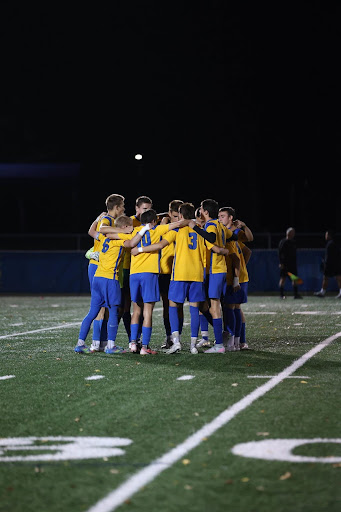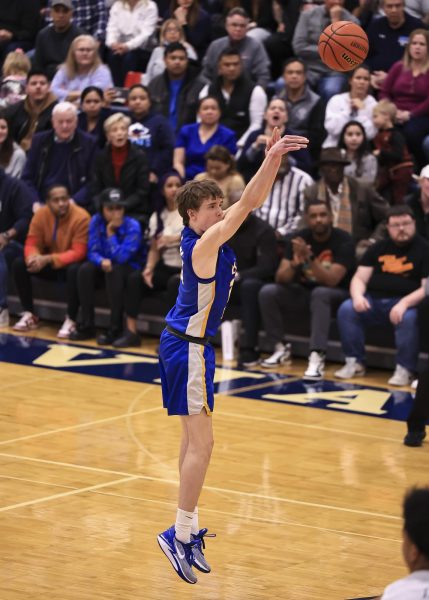When it comes to success, most athletes’ main goal is to exceed their expectations. Many players enjoy competing at a high level and playing the game they love. However, one factor of competition that is often unconsidered is the pressure athletes face every practice and game.

Playing a sport comes with ups and downs whether it’s being the hero or making a costly mistake. This can leave athletes feeling a combination of nerves and excitement.
“There’s always a little bit of pressure at the start of the game for me. I am always nervous, but once I get into the flow of the game the pressure goes away and I just play,” football senior captain Charlie Markee said.
Looking at pressure from a different perspective could change an athlete’s performance.
“I always think that pressure is a privilege. Being able to play sports and feel pressured in big moments is a privilege that a lot of people don’t get to experience. It’s definitely a hard feeling to battle, but it makes big moments much more intense,” senior basketball captain Hudson Scroggins said.
Preparing before games can set athletes up for a good performance, both physically and mentally. For senior soccer captain Boden Rupprecht, good preparation is everything.

“To handle pressure in games, I prepare by trying to practice under pressure. It helps when the coaches and the team make every drill competitive, and always results in a reward or punishment. The pressure isn’t exactly like a real game, but it puts you in a similar environment. It forces you to have to deal with the same emotions and challenges as you do in a real game,” Rupprecht said.
Many athletes have learned what’s best for themselves when it comes to preparing for a game in order to have a performance they are satisfied with. Experience, as well as developing everyday habits, are steps athletes have taken so they can feel comfortable in high-pressure games.
Whether it’s from social media, public hatred, or stress that comes from important games, it can be straining on one’s mental health. Professional gymnast Simone Biles is an excellent example of how pressure can affect someone’s ability to compete. In the 2020 Tokyo Olympics, Biles dropped out of her event because her “mind and body were not in sync,” she said. She developed a psychological scare called “twisties” that results in a gymnast to suddenly lose their sense of where they are when performing an event. This issue could have been caused by the buildup of pressure over time. While Biles would have liked to perform, stepping away from gymnastics was a mature choice in order for her to refocus.
Nowadays, it’s important athletes develop their own preparation techniques so they are mentally focused when it’s time to perform in high pressure moments.








